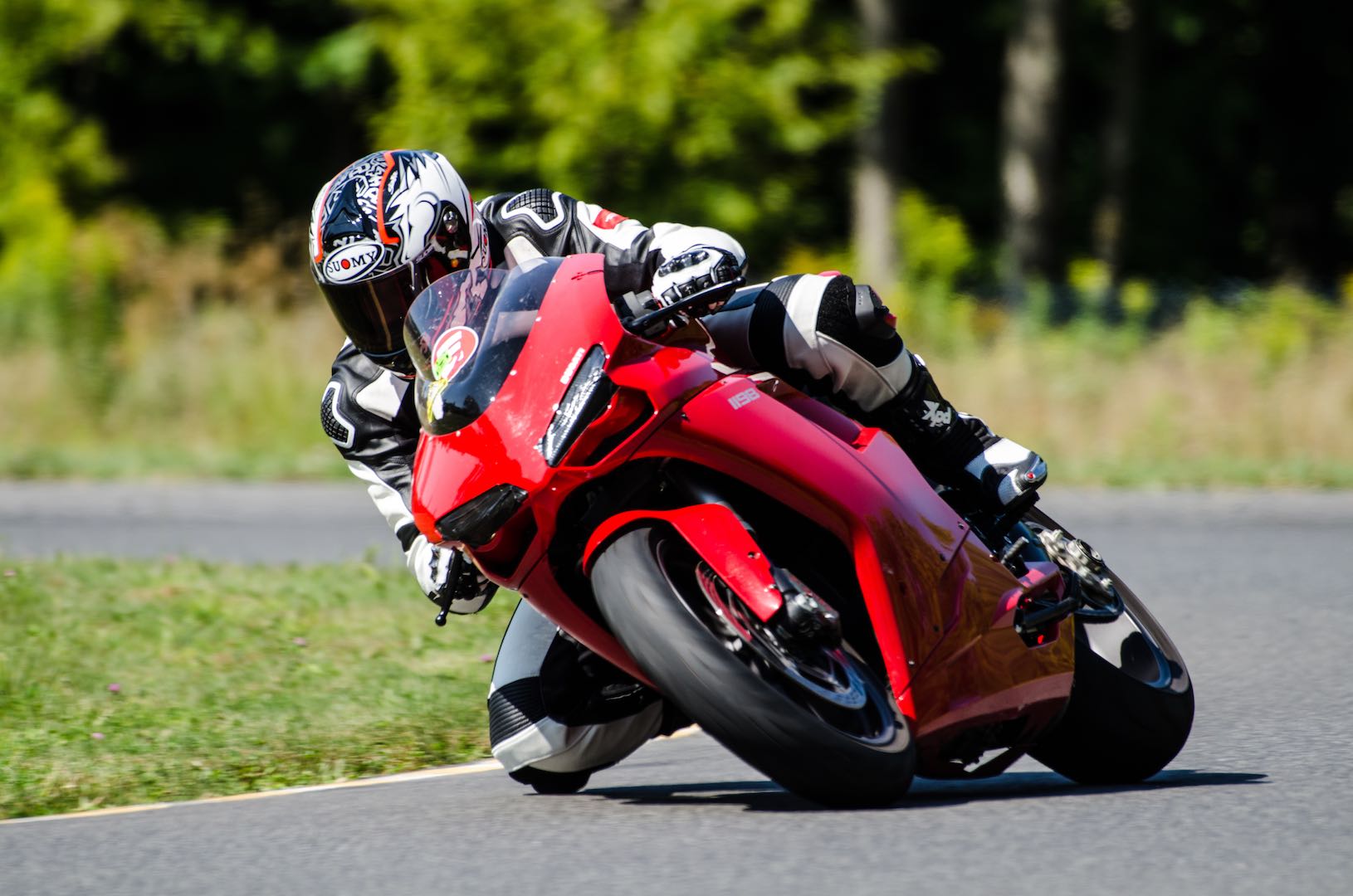Sometimes we just have to walk away from it all.
For a man obsessed with productivity and time management, this sentiment is true for making sure we frequently engage in mental relaxation, something that helps us think clearer while we’re truly at it.
This holds merit for anybody, especially creatives who spend time designing marketing strategies, PPC ads, or writing.
But this time I’m not talking about downtime practices to sustain mental clearness. Rather, I’m talking about walking away from Google.
I spent over two decades writing for non-digital mediums, and over a decade writing creatively while feeding the Google machine.
You have to create content with SEO in mind – especially when businesses rely on my team for creating content that will actually rank well in Google and drive sales.

Besides managing the daily flow of my SEO-driven content marketing agency and one of the leading motorcycle websites, I’m also writing a book on optimizing time management and productivity.
The book’s end goal is simple – guide people to finish more quality work in less time, giving people back more of their time to do things they love.
The book writing has freed me of Google.
I can’t lie; it takes some time to get into a search engine vacation. But once the mind is flowing, it feels heavenly.
I haven’t written freely like this for over a decade.
I do create many first drafts for blog posts without an immediate SEO strategy, but writing with SEO in mind is truly ingrained in me, as it is for many content writers that understand the power of SEO.
From keywords to headline tags to worrying about crafting the perfect meta description, tactics of writing for a search engine are always there in the back of the mind, just festering like some sickness.
Just as it’s good to get away from work to be more productive, I’ve decided to walk away from thinking about search engines for other forms of writing, such as this piece, which has allowed me to revisit and refresh my creative process.
This post discusses a day in the life of a creative writer (yes, that was a Beatles ripoff). The tactics are also useful across any discipline – from creating SEO strategies to developing a dominating paid advertising campaign to planning your business’s quarterly goals.
Following is a typical schedule for creative days – I’ll use Tuesdays and Thursdays because that’s my usual days for these practices.
The goal is a mind – and schedule – free of distractions and primed to produce the most creative work possible.
The kind of processes that makes your work stand out among a crowd that doesn’t like to disrupt the status quo because it’s simply comfortable to remain stagnant.
BORING.
The Evening Before: Set Intentions Before Bed
I typically use Tuesdays and Thursdays for highly creative work.
The motivation begins the nights before those days, though, by setting intentions before I go to sleep. I mean downright imagining them – seeing, hearing and feeling them.
Many self-development gurus discuss this, including Tony Robbins, but the person that explained it simplest for me was Hal Elrod in “The Miracle Morning: The Not-So-Obvious Secret Guaranteed to Transform Your Life Before 8AM” (SEO was definitely not in mind for that title creation!).
Elrod says:
“The first key to waking up is to remember this: Your first thought in the morning is usually the last thought you had before you went to bed.”
The whole point is to awake motivated to write – because if you go to sleep miserable or worrying about the writing process itself, your day will start off on a negative note.
This will certainly affect your entire day – especially if you’re like many people who have their most creative periods in the early a.m. when the mind is fresh and nothing has robbed any creative bandwidth.
Before going to bed, I meditate and visualize standing at my desk, the windows open, the trees moving, and the words moving across my Mac as I type.
I hear my fingers smashing the keyboard (I’m stupidly loud because of calluses due to wrenching on motorcycles and loving to create a certain cadence), and whatever music I plan for the day.
Like most, music selection is important. I need metal for certain subjects, classical for others, and everything in between, from goth to blues to jazz.
I also imagine what the keyboard feels like, along with the positive emotions I get when I finish something that will add value to another person’s life. This process helps tremendously.
Just don’t party too much the night before a creative period is scheduled; your evening thoughts may be drastically different from reality, and your day can quickly crumble.
The Morning Of
Now you’ve awoken with the final thoughts you had before you went to bed, and, though most say its crazy, your subconscious has already prepped your creativity.
These are the days you wake up to an alarm, preferably from your phone or whatever that’s well across your room. The act of getting up and immediately moving helps awaken you quicker, getting the mind energized to produce.
Stretches, mediations, workouts – do whatever you like best to get the energy flowing both physically and creatively.
But the most important thing to do is not check email, text messages or social media before beginning and ending your first block of time for creative hours.
This is a total game changer, and your mind will be super fresh and sharp and able to deeply focus on the task at hand, whether writing, creating an SEO strategy or your business plan for the next year.
I gave up on office hours years ago and bargained with those I worked with in the past to have at least two at-home days to get my most creative work completed.
But if you have to travel to an office, try to even lose the podcasts or music altogether. Begin the creative process right there – and always keep your phone handy for recording yourself or dictating an email to yourself.
Again, though, resist the temptation to check your emails or anything else on your smartphone.
Most people have their most creative moments in the morning, but others don’t. If this is the case, try to remain unplugged for at least two to three hours before your creative period.
And if you have a demanding job where you must check email, resist the temptation of opening anything else but the emails needed for work.
This is why it’s vital for companies to be specific with subject lines – sometimes the titles seem urgent, but it’s about planning a birthday party or something similar.
All will take a bit of your “creative spend.”
Blocks of Distraction-Free Creative Time
Now’s the time to get to work within a window of total distraction-free blocked time. Everyone has their personal limits for creativity – some become burnt after 30 minutes, others after five hours.
I’ve grown mine to about 3.5 hours before the mind starts wandering and I lose focus and can’t keep my attention creatively directed on my project.
A decade ago it was less than an hour, so I made progress but found anything after say four hours and I am simply writing words, not engaging thoughts.
During this time you must create an environment of zero distractions. This is easy for remote workers, but in-office situations are loaded with distractions that prevent sometimes even two solid hours of creative work from being completed during a normal 40-hour workweek.
For office situations, let co-workers know your creative time periods. And unless someone is dying or the CEO was arrested for fraud, allow no distractions whatsoever.
Keep your cell phone out of sight, and all email/social media/chat notifications off. If you have an office put a sign on the door.
If you’re in one of those annoying spaces with an open floor plan where deep thinking is impossible, use headphones and try to super focus as strong as possible.
When I was working in a noisy marketing department of a pet supplies company year’s back, I’d even wear sunglasses to let people know I was not to be bothered.
Do what it takes, but kill the distraction and keep the focus on your creating your best work. Practice zoning out all the noise.
Forget About It, Part 1
Now that you got your most creative period over, it’s time to forget about everything you just did and recharge the mind for the next round of blocked time.
Check email, social media, text messages, Slack – whatever is needed.
Go bother a co-worker, or go for a walk.
Read a book.
Do whatever is needed to totally clear your mind from your most creative project.
My personal way is by getting on a motorcycle and going for a spirited ride – the ones where a single mistake or lack of focus can kill you.
That’s the beauty about riding motorcycles at pace – you are forced to not let the mind wander, and must fully focus on the task at hand – riding. If not you can get hurt – and quickly.
I have many scars that tell the story, but learned from them and capitalized on them.
And just as creative periods of time are different for everyone, so is the downtime needed to refresh.
I may go for a two-hour ride one day, or a 15-minute ride the next. It all depends on the situation.
Just don’t get lazy here – it’s easy to forget about returning to creative time and just say screw it all for the day, but your work won’t interrupt the mindset of anyone with lazy practices.
Sometimes it will happen, and maybe that’s your mind telling you it can’t take anymore. If so don’t brood over it, but discipline yourself to not allow this to happen in the future.
Just before returning to your creative time revisit the meditation practice you did the night before.
Prime your mind for another round, and get excited about making a difference through your work.
Remember, the most successful ones are those who don’t try to align themselves with the status quo – create something that adds super value, and stand out. High creativity does this.
Blocks Distraction-Free Creative Time, Part 2
Once you’ve recharged, it’s time to get back to it.
Your mind is fresh now, and depending on how disciplined you are, the workflow will either be as great as the morning session, or much less.
If it’s much less, just stick with this and your creative capacity will surely increase. This creativity capacity can be strengthened just like a muscle can – the more discipline you have, the more valuable results you’ll have.
Continue what you did in the first part of blocking distraction-free creative time, and go until the limit you’re used to.
I also discovered that if I do something ridiculously active during my “Forgot About It” portion above, like riding a sportbike at a spirited pace on some twisty back roads, my afternoon creative blocks are much stronger, and I get more done in less time – my largest goal in life.
 The author getting away from it all.
The author getting away from it all.Forget About It, Part 2
Once the day’s second creative period is over, it’s time to once again forget about it.
This will refresh your mind for the next day’s work, whether that’s another creative day or a normal workday with meetings or whatever.
Again, it’s completely counterintuitive but the more you get away from it all and just forget about work, the stronger your work becomes.
Your family and friends will also benefit from this downtime because you’ll be more focused on the moment, and not discussing work plans every couple of minutes.
Also, before bedtime, don’t check emails – my stress levels greatly subsided once I quit checking work emails in the evening.
I was always waiting for that certain reply from a prospective client, or if I got some work in from writers or SEO team.
But the anticipation created more stress than needed – now I don’t check email anytime after typically 6 p.m. – unless I’m waiting on something important that needs to be fulfilled for client or partner.
Concluding Thoughts
One of life’s biggest secrets to success resides in having patience and discipline.
This holds extreme merit for productivity and managing time – especially for those more creative days when the real work gets done – the work that moves the proverbial needle.
The steps above have taken me a few years to create, but the patience and discipline to design and implement them for my creative days have truly produced endless ROI.
We only have 1,440 minutes in a day, and we can never get one back – so it pays to truly focus on getting the most out of our creative moments.
And yes – it was nice to forget about SEO and do some creative writing on technique. But then I took a second look at my article and decided it needed a slight SEO makeover.
Sometimes we can never truly get away from it all.
More Resources:


